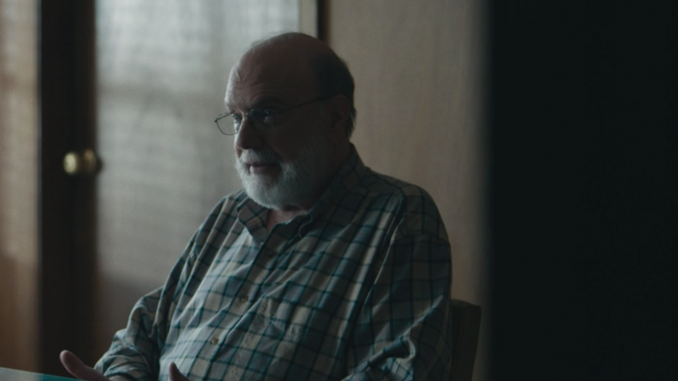
Seated at a battered wooden desk and surrounded by 10 cameras, David Kairys told his story of trying to uncover a mysterious death in the 1950s.
Kairys, a Beasley School of Law professor and civil rights lawyer, was interviewed in 2015 for the six-part Netflix documentary “Wormwood,” which explores the death of an American scientist, Frank Olson, in 1953 after he was drugged by the CIA without his knowledge. In the 1970s, Kairys represented the Olson family when they contemplated suing the CIA for Olson’s wrongful death. The entire series was released on Dec. 15.
“Wormwood” is directed by Errol Morris, a filmmaker known for examining authority figures. His 1988 documentary, “The Thin Blue Line,” prompted the release of a man wrongfully convicted of murder.
The documentary alternates between interviews and reenacted scenes to tell the story of Olson’s death and his son Eric Olson’s decades-long attempt to uncover the truth of what happened.
In the 1950s, Frank Olson worked as a bioweapons expert for the United States government. During a work retreat, he was given a drink by CIA officials that had been secretly spiked with LSD, a hallucinogenic drug which was largely unknown to the public at the time.
“The psychedelic age hadn’t yet come,” Kairys said. “So he would be struck with these hallucinations and delusions and a range of rather extreme feelings and not know what it is and not know whether it was going to stop.”
Nine days later, after traveling with the CIA to New York City for a supposed psychiatric evaluation, Frank Olson fell to his death from a hotel room window.
The government initially did not tell Frank Olson’s family about his LSD consumption and said that he had committed suicide. But 20 years later, as part of a post-Watergate intelligence reforms effort, the CIA was forced to reveal Frank Olson had been given the drug.
Upon learning this new information, Kairys said Eric Olson then contacted him and his law partner, David Rudovsky, in 1975 to take legal action against the government. Eric Olson believed that his father had been murdered to prevent him from talking about abuses committed by the CIA.
“Government using illegitimate force on people was very much a part of lots of our civil rights work,” Kairys said. “[But the Olson case] was a little above.”
Part of the film examines the disagreement between Kairys and Rudovsky over how to approach the case. While Rudovsky favored settling with the government, Kairys said he wanted to go forward with a lawsuit to discover the truth behind Frank Olson’s death, despite the risk of not obtaining a financial recovery for the family.
Ultimately, Frank Olson’s wife, Alice, agreed to a $750,000 settlement.
“She said in a phone call we had that it was bad enough that the [CIA] drugged him,” Kairys said. “She wasn’t sure if she could handle it if it turns out they also killed him.”
Kairys said the government insisted Frank Olson’s LSD consumption was part of a formal experiment, but he did not believe them.
“There were none of the usual hallmarks of a real experiment,” Kairys said. “There was no observation. There was no recording of anything, and no data.”
Over the following decades, Kairys said he kept in touch with the Olson family as Eric Olson continued to investigate his father’s death.
“Each time there’d be a new revelation, then it would settle down, but it wouldn’t quite be resolved,” Kairys said. “He would just go through these cycles. It wound up basically taking the rest of his life.”
Since the 1970s, Kairys said Eric Olson and other investigators have gathered more information about Frank Olson’s death, but have been unable to reach a conclusive answer.
Kairys watched “Wormwood” for the first time last weekend. He said he was impressed by how Morris wove together documentary material with the “drama” of well-produced reenactments.
“Having seen the case unfold and then [seeing] the filming up in Boston, I still wouldn’t have imagined exactly what he was doing,” Kairys said. “It’s really quite a tour-de-force.”


Be the first to comment